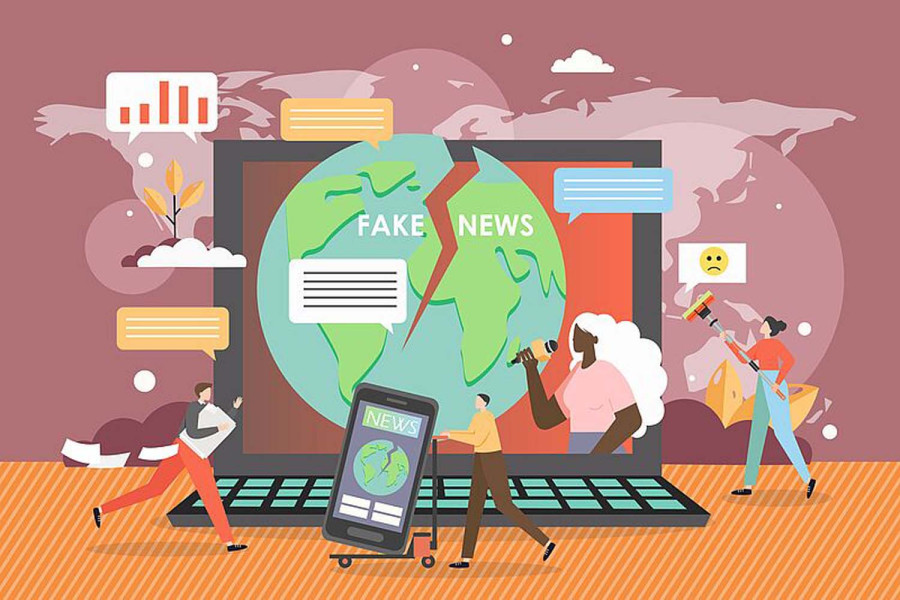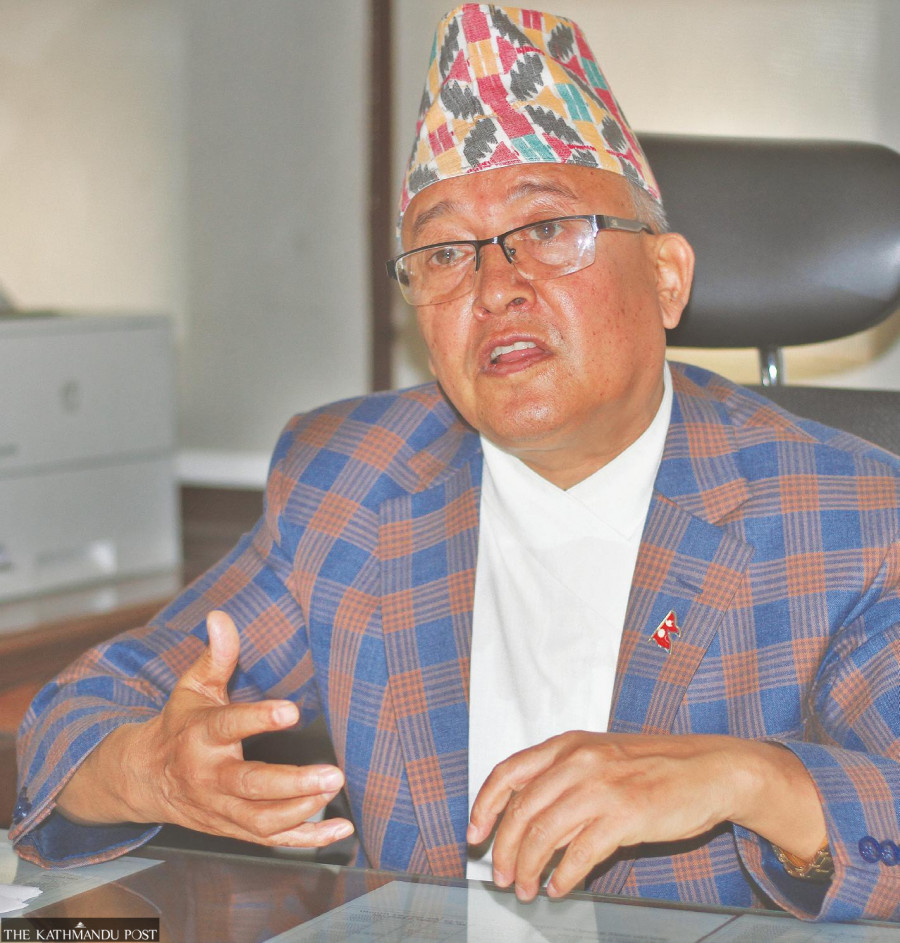Columns
Fighting disinformation together
Election preparations enter a crucial stage, when bad actors may resort to disinformation and misinformation.
Dinesh Kumar Thapaliya
Digital technologies have not only touched every aspect of our life, they have also brought sweeping changes in the exercise of democracy and the management of democratic elections. Growing access to the internet and social media has enabled people to better exercise their freedom of expression, which is a condition for a free, fair and credible elections and a thriving democracy.
Experience from various countries and our own suggests that the development and spread of the internet and social media have been a boon in the management of democratic elections. The internet and social media have opened the door for improving voters’ education and increasing people’s electoral participation. Besides the experience of the Election Commission, Nepal (ECN) suggests social media platforms are a handy tool for monitoring the compliance of the election code of conduct as political parties and candidates are increasingly turning to such platforms for their election campaigns.
Likewise, information and communication technologies (ICTs) have been advantageous for political parties and candidates, allowing them to disseminate and debate their election agenda with their potential voters and to galvanize public support and participation in a speedy and a cost-effective way. The social media and internet have also enhanced public scrutiny over the management of election, electoral process, political parties and the candidates, which will ultimately contribute to free, fair and credible elections.
More importantly, ICTs have helped democratize information that is so vital for voters to make an informed decision on the election day and to pick the right representatives.
The ECN is the first public institution in Nepal to fully acknowledge the benefits of the internet and social media and has formulated a policy on the use of such media in election management. The policy aims to ensure optimum use of social media so that people can get the right information to make an informed choice on the election date.
It also intends to counter disinformation, misinformation and hate speech, especially on social media, that have emerged as a matter of concern for election management bodies worldwide. The ECN is no exception.
The use of false and harmful information during an election for vested political gains and to inflict harm on political opponents is not new. In the past, disinformation and misinformation used to travel through word of mouth. What is new is the use of social media to spread disinformation with speed in a coordinated and organized manner in order to interfere with and influence election results.
There has been growing evidence after the 2016 US presidential elections and Brexit that disinformation, both domestic and cross-border, could be a weapon to undermine the integrity of an election, otherwise conducted in a professional, credible and transparent manner.
The ECN is aware of the use of disinformation and misinformation in recent elections in different parts of the world and has chalked out policies and strategies to ensure that such disinformation does not undermine the November 20 elections. In fact, the ECN has a sound policy and mechanisms in place to counter disinformation. The current policy, first of its kind by any of Nepal’s public institutions, evolved from the lessons from the local level elections in May.
The Election Code of Conduct has envisioned policies that prohibit all kinds of disinformation aimed at adversely affecting election management and influencing election results. They are based on best policy practices of democratic countries. More importantly, they are based on the principle of freedom of expression as envisioned by the Constitution and the International Covenant on Civil and Political Rights.
The ECN has also set up an institutional mechanism comprising cyber experts from Nepal Police (NP) and the Nepal Army (NA) and disinformation experts and computer engineers from the government services to ensure that election integrity is not undermined by disinformation, misinformation and hate speeches. A similar mechanism was set up in the local level election where the representatives from UNDP and IFES worked with cyber experts from NA and NP.
As suggested by an internal policy review and the lessons from the local level election, online disinformation and misinformation is a complex and multi-faceted problem that requires an integrated approach. Accordingly, a team of cyber security experts from NA and NP, computer engineers and social media and disinformation experts are working closely under the newly-established Press Office to monitor online disinformation, particularly organized and cross-border kinds. As this effort will not bear fruit without collaboration with social media companies, the commission has a policy of working with tech companies to ensure that the integrity of the election is not compromised by any coordinated, well-resourced disinformation campaigns within and outside the country. Such a collaboration, the first of its kind, has already started yielding positive results.
The ECN is fully aware of concerns from a section of the society that its ongoing efforts to regulate disinformation, misinformation and hate speeches could jeopardize people’s freedom of expression. In fact, the ECN policy has been wrongly understood as an effort to curtail the freedom of expression. The commission strongly believes that disinformation, misinformation and hate speeches are a threat to democracy and democratic elections, and could restrict free flow of information.
More importantly, freedom of expression dies in presence of disinformation as ill-intended political communication could confuse people, create fear, wedge divisions in society, promote discrimination, polarize election discourse and society, and incite violence. Disinformation could pose challenges in the commission’s efforts to inform voters.
Such a political communication guided by vested political interests often has a chilling effect on the exercise of freedom of expression and right to know. That puzzles voters. Coordinated disinformation campaigns restrict free flow of democratic deliberation on issues of public interest during elections. Such campaigns make people fearful of participation. In such a scenario, people may not be able to choose the right representatives.
This is the main concern of the ECN. How can people exercise freedom of speech in such a political environment created by disinformation, misinformation and hate speeches?
Election preparations are entering a crucial stage this week, when bad actors may resort to bombardment with disinformation and misinformation to harm the integrity of elections. The ECN is prepared to deal with even the worst case scenario. But the effort of the commission alone would not be sufficient to avert the chilling and pernicious effects of online disinformation, misinformation and hate speeches, catapulted by the use of social media.
Now, it is the shared responsibility of all stakeholders in the election who believe in democracy to be on the same page to ward off the negative effects of disinformation in the election process and protect the integrity of the November 20 elections.




 18.12°C Kathmandu
18.12°C Kathmandu















